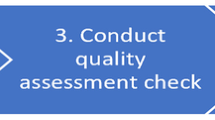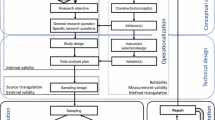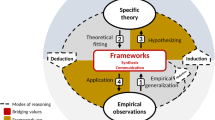Abstract
Transdisciplinarity is often presented as a way to effectively use scientific research to contribute to societal problem solving for sustainability. The aim of this paper is to critically explore this statement. This is done in two ways. First, a literature survey of transdisciplinary research is used to identify the assumptions that underlie the positive relationship between transdisciplinarity and societal problem solving for sustainability. This mapping identifies the claim that in-depth participation of users and the integration of relevant knowledge from both practice and research in real-world problem contexts produce socially robust results that contribute to sustainability. Second, the ability to live up to this claim is presented and discussed in five case study projects from Mistra Urban Futures, a transdisciplinary center in Göteborg, Sweden. The conclusions show that transdisciplinary processes, which fulfill the above conditions, do produce different types of socially robust knowledge, but this does not necessarily result in the ability to influence change in a sustainable direction. This instead creates a paradox in that the participation of stakeholders and the integration of knowledge from diverse sources require spaces that are both embedded in and insulated from practice and science proper. Such spaces produce results that are not easily aligned with sector-based target groups and formal policy processes. Institutionalizing transdisciplinarity in a boundary organization therefore solves some problems regarding participation and balanced problem ownership. However, it also creates new, hybrid problems, regarding knowledge transfer and scalability, which bridge the boundaries and challenge the praxis of planning and policy making.
Similar content being viewed by others
Notes
While there has been a difference in the discourses and use of transdisciplinary between North America and Europe (Frodeman 2010; Klein et al. 2001; Robinson 2008), there seems to be increasing convergence between European and North American research (Lang et al 2012; Wiek et al 2012). The Australian example on integration sciences is included because it is recent, and originates from another field, the health sciences, with a slightly different methodological focus (Bammer 2013).
A more detailed analysis of the relationship between different degrees of practitioner and researcher participation and knowledge integration are taken up in another paper (Polk forthcoming).
For more information about the center, please see the home page at: mistraurbanfutures.org.
The terms ‘stakeholder’, ‘practitioner’, ‘user’ and ‘practice’ are used to refer to individuals and activities which fall within the professional mandates of public and private spheres of activity. This includes employees from the public bodies in the Consortium, such as any municipal and regional officials, planners and administrators as well as business and community group representatives and the general public and their respective activities.
The City of Göteborg, the Göteborg Region Association of Local Authorities (GR), Västra Götalands Region (VGR), The County Administration Board (CAB), The University of Chalmers, The University of Gothenburg, and IVL the Swedish Environmental Research Institute.
The City is used to refer to the Municipality of Göteborg, the largest municipality in the region. The regional bodies refers to both GR, a voluntary association of 13 municipalities, VGR, the regional political governing body, consisting of 49 municipalities, and CAB, the County Administration Board, or regional arm of the national government.
It can be argued that the time frame of the project evaluation was too short, and therefore unable to capture more long-term effects. However, analyzing the uptake of the immediate results of the projects, from the final interview and project outputs, also gives valuable information about the barriers being faced. It can also be the case that such project results have a short shelf life, due to information overload and the time pressures of planning and policy-making.
References
Bammer G (2013) Disciplining interdisciplinarity: integration and implementation sciences for researching complex real-world problems. ANU e-press, Canberra
Bergmann M, Jahn T, Knobloch T, Krohn W, Pohl C, Schramm E (2012) Methods for transdisciplinary research: a primer for practice. Campus Verlag, Frankfurt
Billger M, Alfredsson K, Lindkvist J, Myren P, Clase K (2012) Urbana spel (Urban Games). Mistra Urban Futures working paper, Mistra Urban Futures, Göteborg, Sweden
Blackstock KL, Carter CE (2007) Operationalising sustainability science for a sustainability directive? Reflecting on three pilot projects. Geogr J 173(4):343–357
Blackstock KL, Kelly GJ, Horsey BL (2007) Devloping and applying a framework to evaluate participatory research for sustainbility. Ecol Econ 60:726–742
Castro C (2004) Sustainable development: mainstream and critical perspectives. Organ Environ 17(2):195–225
Earth Charter (2000) Values and principles for a sustainable future. Accessed on the web at: http://www.earthcharterinaction.org/content/pages/Read-the-Charter.html
Elias K, Forsemalm J, Gustafsson J, Johansson M, Lilled L, Montin S, Löf Y (2011) Governance: att styra med insikt snarare än avsikt. En studie om flernivåstyrning och sektorssamverkan i Göteborg och Malmö (Governance: to govern by insight instead of by intent, a study of multi-level governance and cross-sector collaboration in Göteborg and Malmö), Mistra Urban Futures Pilot Project Report, Mistra Urban Futures, Göteborg, Sweden
Eriksson E, Sandoff A, Värmby G, Rönnborg P, Jensen C, Molnar S, Bergstrand BO, Antonsson AB, Elias K, Kildsgaard I, Bolin L, Wolf C (2011) Affärsdriven hållbar stadsutveckling: Goda exempel och potential (Business driven sustainable urban development: good examples and potential). Mistra Urban Futures Policy Project Report, Mistra Urban Futures, Göteborg, Sweden
Frodeman R (ed) (2010) The Oxford handbook of interdisciplinarity. Oxford University Press, Oxford
Funtowicz S, Ravetz J (1993) Science for the post-normal age. Futures 25(7):739–755
Gibbons M, Limoges C, Nowotny H, Schwartzman S, Scott P, Trow M (1994) The new production of knowledge: the dynamics of science and research in contemporary society. Sage Publications, London
Healey P, de Magalhaes C, Madanipour A, Pendlebury J (2003) Place, identity and local politicis: analyzing initiatives in deliberative governance. In: Hajer M, Wagenaar H (eds) Deliberative policy analysis: understanding governance in the network society. Cambridge University Press, New York, pp 60–87
Hellström T, Jacob M (2003) Boundary construction in science: from discourse to construction. Sci Public Policy 30(4):235–238
Hirsch Hadorn G, Hoffman-Reim H, Biber-Klemm S, Grossenbacher-Mansury W, Joye D, Pohl C, Wiesmann U, Zemp E (eds) (2008) Handbook of transdisciplinary research. Springer, Berne
Holden E (2007) Achieving sustainable mobility: everyday and leisure-time travel in the EU. Ashgate, Aldershot
Hopwood B, Mellor M, O’Brien G (2005) Sustainable development: mapping different approaches. Sustain Dev 13:38–52
Innes J, Booher D (2003) Collaborative policy making: governance through dialogue. In: Hajer M, Wagenaar H (eds) Deliberative policy analysis: understanding governance in the network society. Cambridge University Press, New York, pp 33–59
Jacob M (1996) Sustainable development: a reconstructive critique of the United Nations debate. Department of Theory of Science and Research, Göteborgs University, Sweden
Kates RW, Parris TM, Leiserowitz AA (2005) What is sustainble development: goals, indicators, values and practice. Environment 47(3):9–21
Klein JT (2010) A taxonomy of interdisciplinarity. In: Frodeman R (ed) The Oxford handbook of interdisciplinarity. Oxford University Press, Oxford, pp 15–30
Klein JT, Grossenbacher-Mansuy W, Häberli R, Bill A, Scholz RW, Welti M (eds) (2001) Transdisciplinarity: joint problem solving among science, technology and society. Birkhäuser, Basel
Lang DJ, Wiek A, Bergmann M, Stauffacher M, Martens P, Moll P, Swilling M, Thomas CJ (2012) Transdisciplinary research in sustainability science: practice, principles and challenges. Sustain Sci 7(Supplement 1):25–43
Morrison G, Knutsson P, Buhr K, Thörn P, Moback U, Areslätt H (2012) Climate adaptation and sustainability strategies for a waterfront development, Mistra Urban Futures Working paper, Mistra Urban Futures, Göteborg, Sweden
Nowotny H, Scott P, Gibbons M (2001) Re-thinking science: knowledge and the public in an age of uncertainty. Polity Press, Cambridge
Owen S, Cowell R (2011) Land and limits: interpreting sustainability in the planning process, 2nd edn. Routledge, London
Parr A (2009) Hijacking sustainability. The MIT Press, London
Pohl C, Hirsch Hadorn G (2007) Principles for designing transdisciplinary research. Oekom, Munich
Pohl C, Rist S, Zimmermann A, Fry P, Gurung GS, Schneider F, Speranza CI, Kiteme B, Boillat S, Serrano E, Hadorn GH, Wiesmann U (2010) Researchers roles in knowledge co-production: experience from sustainability research in Kenya, Switzerland, Bolivia and Nepal. Sci Public Policy 37(4):267–281
Polk M (2010) Sustainability in practice: the interpretation of sustainable development in a regional planning arena for dialogue and learning in Western Sweden, Planning. Theory Pract 11(4):473–489
Polk M (2011) Institutional capacity building in urban planning and policy making for sustainable development: success or failure? Plan Pract Res 26(2):185–206
Polk M, Malbert B, JH Kain (2009) The Göteborg Center of excellence for sustainable urban futures, Göteborg, Mistra Center Application
Polk M, Kain JH, Holmberg J (2013) Mistra Urban Futures: a living laboratory for urban transformations in regenerative sustainable development of universities and cities. In: Ariane König (ed) The role of living laboratories, Chapter 9. Edward Elgar Publishing, Cheltenham
Redclift M (1987) Sustainable development: exploring the contradictions. Routledge, London
Robinson J (2008) Being undisciplined: transgressions and intersections in academia and beyond. Futures 40:70–86
Roth S, Thörn P, Buhr K, Moback U, Morrison G, Knutsson P, Areslätt H (2011) Frihamnen i ett förändrat klimat Klimatanpassningsstrategiers påverkan på hållbar utveckling (The influence of climate adaptation strategies on sustainable development) Mistra Urban Futures Pilot Project Report. Mistra Urban Futures, Göteborg
Scholz RW (2011) Environmental literacy in science and society. Cambridge University Press, Cambridge
Spangenberg J (2011) Sustainability science: a review, an analysis and some empirical lessons. Environ Conserv 38(3):275–287
Stauffacher M, Flüeler T, Krütli P, Scholz RW (2008) Analytic and dynamic approach to collaboration: a transdisciplinary case study on sustainable landscape development in a Swiss prealpine region. Syst Pract Action Res 21:409–422
Stenberg J, Fryk L, Bolin E, Borg P, Castell P, Evenås U, Larberg V (2011) Urban empowerment: cultures of participation and learning. Mistra Urban Futures Working Paper, Mistra Urban Futures, Göteborg, Sweden
Stokols D, Hall KL, Moser MP, Feng A, Misra S, Taylor BK (2010) Cross-disciplinary team science initiatives: research, training, and translation. In: Frodeman R (ed) The Oxford handbook of interdisciplinarity. Oxford University Press, Oxford, pp 471–493
Tabàra J, Pahl-Wostl C (2007) Sustainability learning in natural resource use and management. Ecol Soc 12(2):3
Talwar S, Wiek A, Robinson J (2011) User engagement in sustainability research. Sci Public Policy 38(5):379–390
UNCED (1992) Agenda 21. United Nations conference on environment and development
Walter AI, Helgenberger S, Wiek A, Scholz RW (2007) Measuring societal effects of transdisciplinary research projects: design and application of an evaluation method. Eval Program Plan 30(4):325–338
WCED (World Commission on Environment and Development) (1987) Our common future. Oxford University Press, Oxford
Weingart P (2008) How robust is socially robust knowledge? In: Carrier M, Howard D, Kourany JA (eds) The challenge of the social and the pressure of practice. Science and values revisited. University of Pittsburg Press, Pittsburgh
Wiek A, Ness B, Schweizer-Ries P, Band FS, Farioli F (2012) From complex systems analysis to transformational change: a comparative appraisal of sustainability science projects. Sustain Sci 7(Supplement 1):5–24
Wiek A, Talwar S, O’Shea M, Robinson J (2014) Toward a methodological scheme for capturing societal effects of participatory sustainability research. Res Eval 23:1–16
Acknowledgments
I would like to thank all of the participants in the test projects at Mistra Urban Futures, especially the project leaders and working group members. I would also like to thank Lotten Westberg, Jaan-Henrik Kain, Tomas Hellström and Lotta Frändberg for their work and input into different parts of this research. I would finally like to thank three anonymous reviewers for very helpful comments. This work was financed by Mistra Urban Futures.
Author information
Authors and Affiliations
Corresponding author
Additional information
Handled by Arnim Wiek, Arizona State University, USA.
Rights and permissions
About this article
Cite this article
Polk, M. Achieving the promise of transdisciplinarity: a critical exploration of the relationship between transdisciplinary research and societal problem solving. Sustain Sci 9, 439–451 (2014). https://doi.org/10.1007/s11625-014-0247-7
Received:
Accepted:
Published:
Issue Date:
DOI: https://doi.org/10.1007/s11625-014-0247-7




